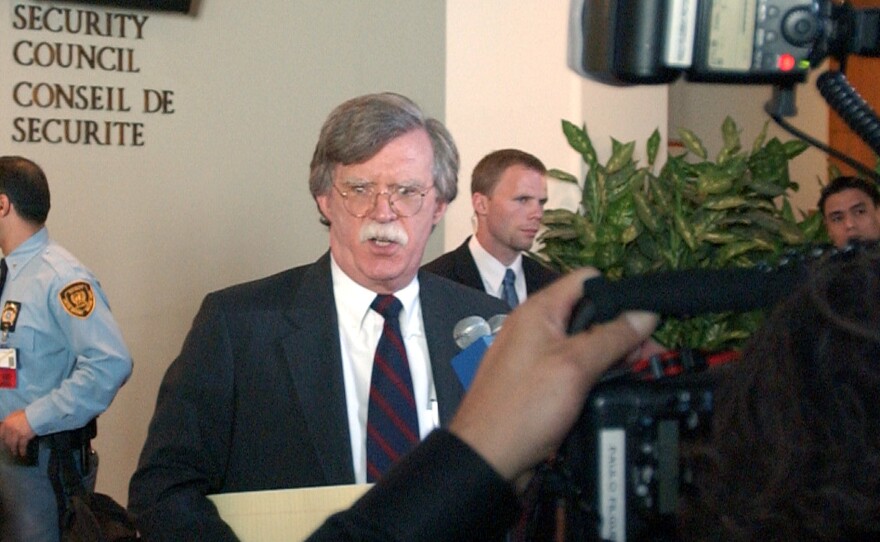
The State Department has opened up a transition office, but that ground-floor corner office in Washington's Foggy Bottom neighborhood is quiet for now as diplomats await news of their new boss. Donald Trump's pick for secretary of state could tell a lot about the direction he will take U.S. foreign policy.
At the moment, all eyes are on former New York Mayor Rudy Giuliani, a longtime friend of Trump and strong backer throughout the campaign. He's an unlikely candidate with little foreign policy experience, though he did manage the city that is home to the United Nations.
Speaking to the Wall Street Journal CEO council Monday, Giuliani seemed to suggest that he's interested in the post, and he gave some ideas of what direction a Trump administration might go.
On the Iran deal, he said the president-elect has a lot of options because Congress never ratified the agreement. At the same time, he says a new administration might take its time and focus first on the threat of ISIS.
Another name mentioned as a potential secretary of state is John Bolton, a known figure in the State Department whose views on Iran are clear — he has already written in the New York Post that he thinks Trump needs to reverse the Iran deal.
Bolton was a highly combative U.N. ambassador for President George W. Bush and earlier served in the State Department as Bush's undersecretary of state for arms control and international security. He was in the State Department post when the Bush administration essentially killed the 1994 Agreed Framework, an arms deal with North Korea. The prospect of his appointment has rattled some nerves at Foggy Bottom.
Bolton could also face an uphill battle for confirmation, given his support for the Iraq war and his combative manner. Kentucky Sen. Rand Paul, who is on the Senate Foreign Relations Committee, says he opposes Bolton and is not ruling out filibustering the confirmation of either Bolton or Giuliani, according to Politico.
Giuliani could face questions about his paid consulting for foreign governments, as well as his paid speeches for a controversial Iranian exile group, the Mujahedin-e-Khalq, before it was taken off a State Department terrorism blacklist in 2012.
That may be why there are other names floating as potential secretaries of state. Sen. Bob Corker, chairman of the Senate Foreign Relations Committee, is among them. Corker pushed hard to let Congress have a say in the Iran nuclear deal, accusing President Obama of "stiff-arming" Congress — and has been tough on Russia for its role in Syria.
The Tennessee Republican has expressed interest in the State Department job, but told MSNBC that there were others who were "centrally involved in this campaign" who would be more likely to be in that position.
Corker also echoed a position that is in line with the president-elect's, saying it would be great if the U.S. could build a stronger relationship with Russia, despite its aggressive behavior.
Amid the uncertainty, State Department employees have been told to keep working on the Obama administration's priorities. President Obama seems to be holding out hope that there won't be any quick changes in foreign policy, particularly when it comes to his big legacy issues like Iran and climate change.
"The federal government and our democracy is not a speedboat, it's an ocean liner," Obama said before setting off on a trip to Greece, Germany and Peru. State Department officials are counting on that, too.
Copyright 2016 NPR. To see more, visit http://www.npr.org/.






